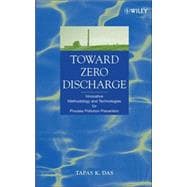
What is included with this book?
|
|||
|
|||
| 1 INTRODUCTION. | |||
|
|||
|
|||
|
|||
|
|||
| PART I: METHODOLOGY. | |||
| 2 ZERO DISCHARGE INDUSTRIES. | |||
|
|||
|
|||
|
|||
|
|||
|
|||
|
|||
|
|||
|
|||
| 3 FUNDAMENTALS OF LIFE CYCLE ASSESSMENT. | |||
|
|||
|
|||
|
|||
|
|||
|
|||
| 4 ASSESSMENT AND MANAGEMENT OF HEALTH AND ENVIRONMENTAL RISKS. | |||
|
|||
|
|||
|
|||
|
|||
|
|||
|
|||
| 5 ECONOMICS OF POLLUTION PREVENTION: TOWARD AN ENVIRONMENTALLY SUSTAINABLE ECONOMY. | |||
|
|||
|
|||
|
|||
|
|||
| 6 SUSTAINABILITY AND SUSTAINABLE DEVELOPMENT. | |||
|
|||
|
|||
|
|||
|
|||
|
|||
|
|||
|
|||
|
|||
|
|||
| PART II: TECHNOLOGIES AND APPLICATIONS | |||
| 7 ZERO DISCHARGE TECHNOLOGY. | |||
|
|||
|
|||
|
|||
|
|||
|
|||
| 8 TECHNOLOGIES FOR POLLUTION PREVENTION: AIR. | |||
|
|||
|
|||
| 9 TECHNOLOGIES FOR POLLUTION PREVENTION: WATER. | |||
|
|||
|
|||
|
|||
| 10 TECHNOLOGIES FOR POLLUTION PREVENTION: SOLID WASTE. | |||
|
|||
|
|||
|
|||
| 11 MINIMIZATION OF ENVIRONMENTAL DISCHARGE THROUGH PROCESS INTEGRATION. | |||
|
|||
|
|||
|
|||
|
|||
|
|||
|
|||
| 12 PROCESS POLLUTION PREVENTION IN THE PULP AND PAPER INDUSTRY. | |||
|
|||
|
|||
|
|||
| 13 PROGRESS TOWARD ZERO DISCHARGE IN PULP AND PAPER PROCESS TECHNOLOGIES. | |||
|
|||
|
|||
|
|||
|
|||
|
|||
|
The New copy of this book will include any supplemental materials advertised. Please check the title of the book to determine if it should include any access cards, study guides, lab manuals, CDs, etc.
The Used, Rental and eBook copies of this book are not guaranteed to include any supplemental materials. Typically, only the book itself is included. This is true even if the title states it includes any access cards, study guides, lab manuals, CDs, etc.